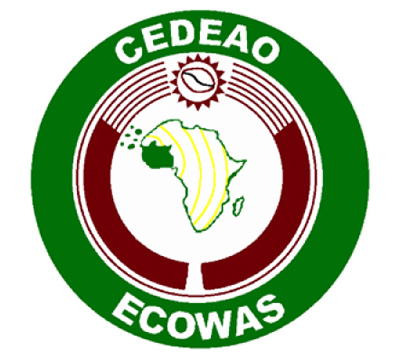ECOWAS experts meet to harmonise standards for sub-region
 The Ghana Standards Authority (GSA) is hosting an ECOWAS Commission (EC) standard harmonisation workshop, which aims at reviewing and finalising critical draft standards that would promote sustainable economic development in the sub-region.
The Ghana Standards Authority (GSA) is hosting an ECOWAS Commission (EC) standard harmonisation workshop, which aims at reviewing and finalising critical draft standards that would promote sustainable economic development in the sub-region.
Dubbed: “The ECOWAS Standards Harmonisation Model (ECOSHAM) Technical Management Committee meeting,” being attended by various heads of national standardisation bodies within the ECOWAS, the meeting would examine the harmonisation work performed by national experts in the chemical product sector, building and construction sector and in the tourism services within participating countries.
The five-day meeting is being attended by experts from Ghana, Nigeria, Benin, Senegal, Cote d’Ivoire, Burkina Faso, Liberia, The Gambia, Sierra Leone, Niger, Mali, Togo, and Guinea.
Professor Alex Dodoo, the Executive Director of GSA, said the Technical Committee which had been in place since 2013 had manage to harmonise 20 standards already and now the focus was on 30 other standards that were going to be reviewed with the ultimate goal of improving trade among member states.
He said the meeting was to help ensure that Standards in the sub-region were compatible with international standards through trading within the states and with the world.
Prof Dodoo said countries needed to ensure that the efforts being made impact on the consumer, and also felt its usefulness.
He appealed to ministers in the sub-region to ensure that the standards were approved and applied to promote trade in the countries.
He said the way to wage war on poverty and elevate the standards of the people through trade was by removing any barriers in trading.
“Our job is to sit with industry to ensure that consumers should get goods which are of good quality, products, which are affordable and which they would have confidence in.
“To do that we agree on standards and once we do that it is up to us the technical people and the industry to deliver to our people. We have no excuse,” he noted.
Prof Dodoo said standards on agriculture, basic industries involving pharmaceuticals, building materials, and renewable energy were going to be discussed and elevated and that the 30 news standards would be agreed upon to be adopted by various heads of state through the Ministers of Trade and Industries.
Mr Lawson Hechelli Mensan, Director of Industry at the EC, said national standard bodies within the member states decided to team up to embark on the harmonisation programme that aimed at supporting the ECOWAS common Market in construction, facilitating trade within the region and at the global level as well as ensuring consumer safety and protection in the region.
He said from 2013 to 2016, about 50 Standards had been harmonised in the region through the technical Committees on Agricultural products, Food products and Electro-technical materials.
These standards also known as “ECOSTANDS” now supersede any existing national standard on the same product/service, hence removing possible technical barrier to trade.
He explained that once the standards being considered at the ECOSHAM were reviewed the drafts ECOSTANDs would be submitted to the next Meeting of the Ministers in charge of Quality in ECOWAS for validation.
Mr Mensan said the standards being harmonised at the meeting would also help build the foundation of regional technical regulations that would ensure the same level of protection of respective markets and populations to benefit regional economy.
He said as the year was being celebrated as African Year of Quality as instructed by the African Union, the onus laid on members in West Africa to maintain the efforts at embracing and adopting quality as a way of life.
He commended the GSA for the active contribution it had been making through the fruitful contribution of its experts in all the six Technical Harmonization Committees of the ECOSHAM.
He also commended partners including the European Union and UNIDO, the Helen Keller International and USAID, PTB and the German Government, and the Swedish Development Agency for supporting the ECOWAS mission in harmonising standards to meet international standards.
He called upon the private sector and the academia to actively collaborate with national standards bodies, and national quality organisations to operationalise standards in the various countries.
“We are also calling upon our media professionals to be on our side in this noble task of sensitization on Quality Promotion; we recognise their capacity and their strength. We know we can count on them across all of ECOWAS,” he said.
In a speech read on behalf the Minister of Trade and Industry, Mr Alan K. Kyeremanteng said the lack of unique or harmonised standards for similar products caused technical barriers to trade and therefore it was proper to rationalise the regional trading process through the harmonisation of international standards.
“We as a country recognise the important contribution that international standards and conformity assessment systems can make to improving efficiency of production and facilitating international trade,” he said
He, therefore, emphasised the need for the creation of a standardisation infrastructure in Ghana and in the sub-region to improve productivity, market competitiveness and export capability.
The Trade Minister charged the Committee to work in converging international methods for developing and administering standards in the pre-market harmonisation, mutual recognition, equivalency and reference standards in its bid to harmonised standards.
Source: GNA
